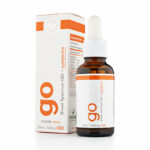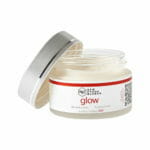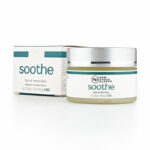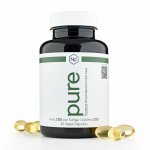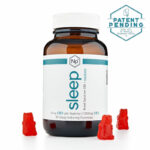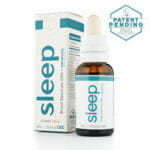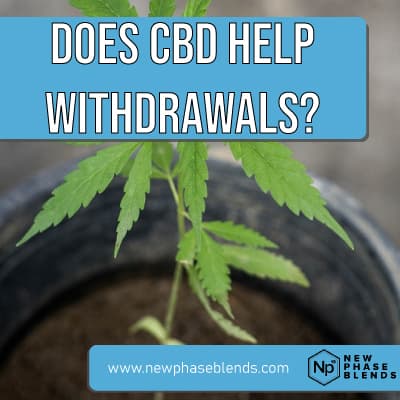Breaking free from substance dependence represents a courageous step toward reclaiming your health and well-being, yet the withdrawal process can feel overwhelming and physically demanding. Many people exploring alternatives to traditional withdrawal management are discovering that CBD products for withdrawals may offer a promising, natural approach to ease withdraw symptoms with CBD support during this challenging transition.
This comprehensive guide will explore how CBD interacts with your body’s natural systems to potentially alleviate withdrawal discomfort, examine the current research supporting its use, and provide practical insights for those considering CBD as part of their recovery journey. Drawing from emerging clinical studies and real-world applications, we’ll help you understand whether CBD for withdrawals might be a valuable addition to your wellness strategy during this critical time.
Whether you’re dealing with alcohol, cannabis, or other substance withdrawals, understanding how CBD for withdrawals works can empower you to make informed decisions about your recovery path while working alongside healthcare professionals who understand your unique situation.
Understanding Withdrawal Symptoms and Their Impact
Withdrawal symptoms occur when your body adjusts to the absence of a substance it has become accustomed to processing regularly. This biological response affects multiple systems throughout your body, creating a cascade of physical and psychological challenges that can make recovery feel insurmountable.
The most common withdrawal symptoms span across several categories of discomfort. Physical symptoms often include nausea, headaches, muscle tension, sleep disturbances, and changes in appetite. Meanwhile, psychological symptoms typically manifest as anxiety, irritability, mood swings, depression, and intense cravings for the substance.
Research indicates that common withdrawal symptoms include anger, irritability, aggression, nervousness, and anxiety, highlighting the significant emotional toll that accompanies the physical discomfort. These symptoms can persist for days or weeks, depending on the substance involved and individual factors such as duration of use, dosage, and personal physiology.
Studies have found that 59% of people using medical cannabis for chronic pain experienced moderate to severe withdrawal symptoms, with sleep difficulties, irritability, and anxiety being the most prevalent. This data underscores how withdrawal affects a substantial portion of users, making effective management strategies essential for successful recovery.
The severity and duration of withdrawal symptoms create a significant barrier to sustainable recovery. Many individuals find themselves caught in cycles of relapse simply because the discomfort becomes unbearable. This reality has prompted researchers and healthcare providers to explore complementary approaches that might ease the transition while supporting long-term recovery goals.
How CBD Interacts with Your Body’s Natural Systems
CBD’s potential effectiveness in managing withdrawal symptoms lies in its unique interaction with your body’s endocannabinoid system, a complex network of receptors and neurotransmitters that help regulate mood, sleep, pain perception, and stress response. Understanding this relationship provides insight into why CBD for withdrawals shows promise as a supportive therapy.
Rather than binding directly to cannabinoid receptors, CBD works by preventing endocannabinoids from being broken down, allowing them to have more of an effect on your body. This mechanism essentially amplifies your body’s natural ability to maintain balance and homeostasis during the stress of withdrawal.
CBD acts as a “reuptake inhibitor” that prolongs the natural life cycle of endocannabinoids, potentially helping to protect the brain, buffer stress, and fight disease by boosting the “tone” of your endocannabinoid system. This enhanced endocannabinoid activity may help stabilize the neurochemical imbalances that contribute to withdrawal symptoms.
The endocannabinoid system plays a crucial role in regulating the stress response through its connection to the hypothalamic-pituitary-adrenal axis. During withdrawal, this system often becomes dysregulated, contributing to heightened anxiety, sleep disruption, and emotional volatility. CBD’s interaction with this system may help restore balance and reduce the intensity of these challenging symptoms.
Research suggests the endocannabinoid system plays an important role in common neurobiological processes related to substance use disorder, indicating that targeting this system through CBD supplementation could address some of the underlying mechanisms that contribute to withdrawal discomfort.
Research Evidence: What Studies Tell Us About CBD for Withdrawals
The scientific community has begun investigating CBD’s potential role in withdrawal management, with several studies providing encouraging preliminary results. While research remains in relatively early stages, the available data suggests that CBD for withdrawals may offer meaningful benefits for certain types of substance withdrawal.
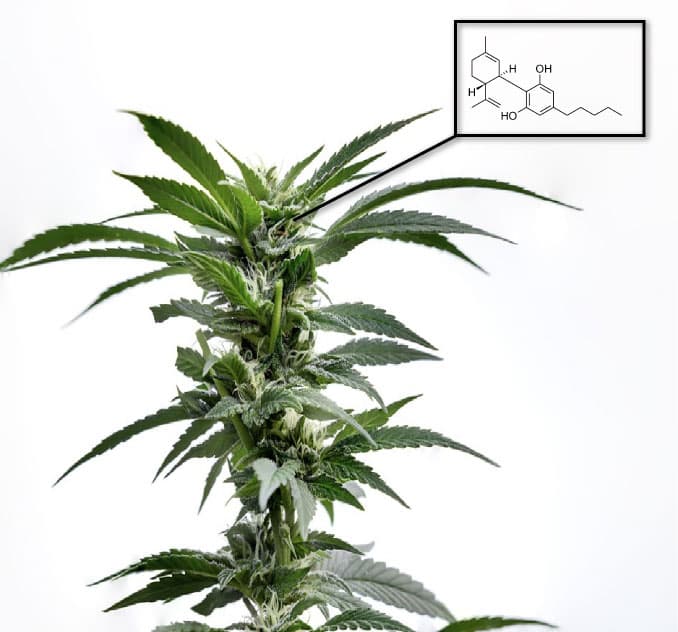
Open-label case studies have reported that CBD products were associated with reduced cannabis withdrawal symptoms during abstinence, with a 10-week trial finding improvements in psychological wellbeing and cognition. These findings suggest that CBD may address both the psychological and cognitive aspects of withdrawal that often prove most challenging for individuals in recovery.
Studies examining CBD’s safety profile during withdrawal have also yielded reassuring results. Research involving healthy volunteers found no evidence of withdrawal syndrome with abrupt discontinuation of short-term CBD treatment, indicating that CBD itself does not create dependence or withdrawal issues when discontinued.
Clinical observations suggest CBD may help mitigate opioid withdrawal symptoms, which can include debilitating anxiety, pain, insomnia, and gastrointestinal issues that typically last 1 to 2 weeks, with some protracted symptoms persisting for months. This potential application represents a significant opportunity, given the severity of opioid withdrawal and the public health crisis surrounding opioid dependence.
CBD Products for Sale by New Phase Blends
Type: CBD oil for energy
CBD: 16mg per serving
Features: Synephrine and CBD blend for energy & focus enhancement
Type: CBD Acne Cream
CBD: 1000mg per 1oz jar
Features: Salicylic acid and CBD blend to stop acne
Type: High strength CBD balm
CBD: 1000mg or 2000mg
Features: Free shipping, money back guarantee
Type: CBD Starter Kit Bundle
Includes: Tincture, Balm, and Gummies
Features: You create your own kit with your custom product choices
Type: Pure CBD Softgel Capsules (Vegan)
CBD: 40mg per Capsule
Features: Free Shipping, Money Back Guarantee
Type: CBD gummies for sleep
CBD: 45mg per gummy
Features: Free Shipping, Money Back Guarantee
Type: CBD Oil For Sleep
CBD: 66mg per serving
Features: Free shipping, money back guarantee
Recent animal studies have also provided insights into CBD’s effects during alcohol withdrawal. Research using mouse models found that CBD treatment during alcohol withdrawal affected anxiety-like behavior, though results varied depending on timing and other factors, suggesting that optimal dosing and timing protocols require further investigation.
While these studies provide a foundation for understanding CBD’s potential, it’s important to note that most research has involved small sample sizes or animal models. Larger, controlled human trials are needed to establish definitive protocols and confirm the preliminary positive findings observed in early studies.
Practical Applications: How to Use CBD for Withdrawal Support
Successfully incorporating CBD for withdrawals into your recovery plan requires careful consideration of product selection, dosing strategies, and timing. The approach that works best often depends on your specific withdrawal symptoms, the substance you’re discontinuing, and your individual response to CBD.
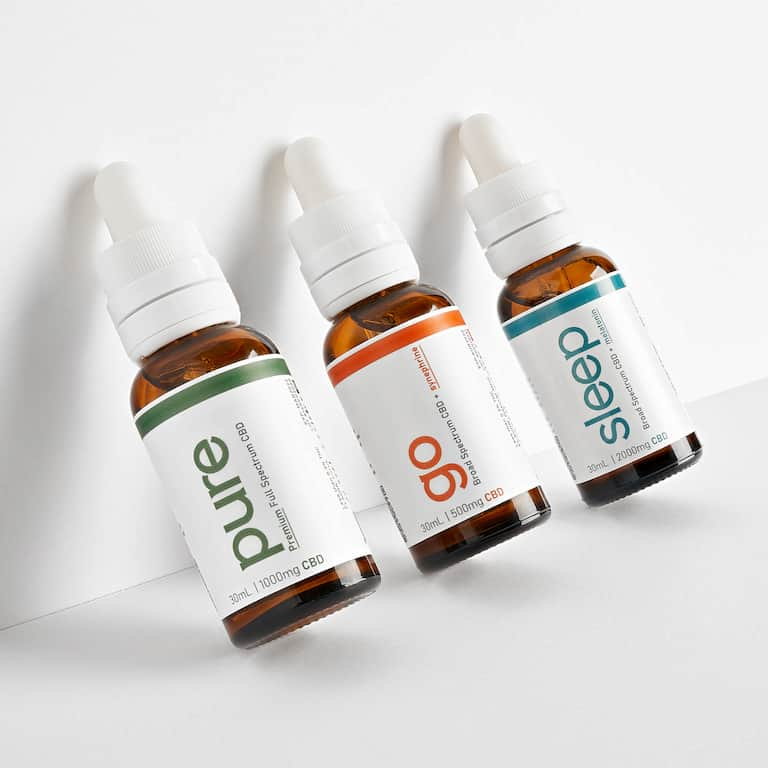
Starting with a low dose represents the most prudent approach when beginning CBD supplementation during withdrawal. Many experts recommend beginning with 10-25 milligrams daily and gradually increasing until you notice symptom relief. This gradual titration allows you to identify your optimal dose while minimizing the risk of side effects during an already challenging time.
Product selection plays a crucial role in effectiveness. Full-spectrum CBD products, which contain trace amounts of other cannabinoids and terpenes, may provide enhanced benefits through what researchers call the “entourage effect.” However, individuals concerned about any THC content, even minimal amounts, might prefer broad-spectrum CBD or CBD isolate products.
Timing your CBD intake strategically can maximize its benefits for specific withdrawal symptoms. For sleep disturbances, taking CBD 30-60 minutes before bedtime may help promote more restful sleep. For anxiety and mood symptoms, dividing your daily dose into two or three smaller doses throughout the day often provides more consistent relief.
Consider combining CBD with other wellness practices that support recovery. Regular exercise, meditation, adequate hydration, and nutritional support can work synergistically with CBD to enhance your overall sense of well-being during withdrawal. Many people find that CBD makes it easier to engage in these supportive activities by reducing anxiety and physical discomfort.
Managing Specific Withdrawal Symptoms with CBD
Different withdrawal symptoms may respond better to specific CBD strategies, allowing you to tailor your approach based on your most challenging symptoms. Understanding these targeted applications can help you maximize CBD’s potential benefits during your recovery process.
Sleep disturbances rank among the most common and disruptive withdrawal symptoms across all substance types. CBD’s potential to promote relaxation and regulate sleep-wake cycles makes it particularly valuable for addressing insomnia and restless sleep. Many users report that CBD helps them fall asleep more easily and experience deeper, more restorative sleep during withdrawal.
Anxiety and mood instability represent another area where CBD shows considerable promise. The compound’s interaction with serotonin receptors may help stabilize mood and reduce the intense anxiety that often accompanies withdrawal. Unlike some anti-anxiety medications, CBD doesn’t appear to create dependence or cause significant drowsiness, making it suitable for daytime use.
CBD may help curb cravings by modulating the brain’s reward system and reducing the reinforcement of addictive behaviors, while also providing a calming effect that can help balance irritability and mood swings during withdrawal. This dual action addresses both the psychological urges and emotional volatility that challenge many people in early recovery.
Physical symptoms such as nausea, headaches, and muscle tension may also respond well to CBD’s anti-inflammatory and pain-relieving properties. Many users find that CBD helps reduce the physical discomfort that can make withdrawal feel unbearable, allowing them to focus on recovery activities and self-care practices.
Digestive issues frequently accompany withdrawal from various substances. CBD’s potential to regulate appetite and reduce nausea may help normalize eating patterns and reduce gastrointestinal distress during this challenging period.
Safety Considerations and Potential Interactions
While CBD generally demonstrates a favorable safety profile, understanding potential interactions and contraindications becomes especially important during withdrawal when your body may be more sensitive to various substances. Responsible use requires awareness of these considerations and ongoing communication with healthcare providers.
CBD can interact with certain medications by affecting liver enzymes responsible for drug metabolism. If you’re taking any prescription medications during withdrawal, including those prescribed to manage withdrawal symptoms, discussing CBD use with your healthcare provider ensures safe concurrent use and appropriate monitoring.
Some individuals may experience mild side effects from CBD, including drowsiness, dry mouth, diarrhea, or changes in appetite. During withdrawal, when your body is already experiencing significant changes, monitoring for these effects becomes particularly important to distinguish between CBD side effects and withdrawal symptoms.
Quality and purity represent critical safety considerations when selecting CBD products. Third-party testing for potency, pesticides, heavy metals, and residual solvents helps ensure you’re using a safe, effective product. Reputable manufacturers provide certificates of analysis that verify their products meet safety and quality standards.
Starting CBD during active withdrawal requires careful monitoring of your symptoms and responses. What works during the acute withdrawal phase may need adjustment as your body stabilizes and recovers. Keeping a simple log of your CBD use, dosing, and symptom changes can help you and your healthcare provider optimize your approach.
Consider potential interactions with other recovery support methods. While CBD generally complements other wellness practices, some recovery programs may have specific policies about cannabinoid use that you should understand before beginning supplementation.
Choosing Quality CBD Products for Withdrawal Support
The CBD market’s rapid expansion has created both opportunities and challenges for consumers seeking reliable products for withdrawal support. Making informed choices about product quality, type, and sourcing can significantly impact your experience and results with CBD during recovery.
Third-party testing represents the gold standard for CBD product verification. Look for products that provide accessible certificates of analysis showing potency verification, pesticide screening, heavy metal testing, and residual solvent analysis. These tests should be recent and correspond to the specific batch you’re purchasing.
Product type selection depends on your specific needs and preferences during withdrawal. CBD tinctures offer precise dosing control and relatively quick onset, making them popular for managing acute symptoms. Capsules provide consistent dosing and longer-lasting effects, which may benefit overall daily management. Topical CBD products can address localized pain or tension without systemic effects.
Hemp source and extraction methods impact both product quality and safety. CBD derived from organically grown hemp using CO2 extraction typically offers superior purity compared to products using chemical solvents or hemp grown with pesticides. Understanding these production factors helps ensure you select products that support rather than compromise your recovery efforts.
Concentration and dosing information should be clearly stated and easy to understand. Products that clearly indicate the amount of CBD per serving and provide dosing recommendations make it easier to start with appropriate amounts and adjust as needed during your withdrawal process.
Working with Healthcare Providers During CBD-Supported Withdrawal
Integrating CBD for withdrawals into your recovery plan works best when coordinated with knowledgeable healthcare providers who understand both addiction medicine and cannabinoid therapeutics. This collaborative approach ensures safe, effective use while maximizing your chances of successful long-term recovery.
Open communication with your healthcare team about your interest in CBD helps them provide appropriate guidance and monitoring. Many providers are becoming more knowledgeable about CBD’s potential benefits and can help you weigh the pros and cons based on your specific situation and medical history.
Documentation of your CBD use, including products, dosing, timing, and observed effects, provides valuable information for your healthcare team. This information helps them assess whether CBD is contributing positively to your recovery and make recommendations for adjustments if needed.
Some healthcare providers may recommend specific CBD products or dosing protocols based on their experience with other patients in similar situations. While individual responses vary, this professional guidance can help you avoid common pitfalls and optimize your approach from the beginning.
Regular check-ins with your healthcare team during CBD-supported withdrawal allow for ongoing assessment and adjustment of your overall recovery plan. What works during acute withdrawal may need modification as you progress through different phases of recovery.
Long-term Recovery Considerations and CBD Use
Successfully managing withdrawal symptoms represents just the first step in a longer recovery journey, and understanding how CBD for withdrawals fits into your long-term wellness plan requires careful consideration of sustainability, dependence potential, and evolving needs.
CBD’s non-addictive properties make it potentially suitable for longer-term use as part of a comprehensive recovery maintenance plan. Unlike many pharmaceutical interventions for withdrawal, CBD doesn’t appear to create physical dependence or require increasing doses over time to maintain effectiveness.
Transitioning from acute withdrawal management to long-term recovery support may require adjusting your CBD approach. The doses and products that help during withdrawal might need modification as your body stabilizes and your recovery priorities evolve toward maintaining sobriety and optimizing overall wellness.
Consider how CBD use aligns with your recovery philosophy and any program requirements you may be following. Some recovery communities embrace complementary approaches like CBD, while others maintain strict policies about any cannabinoid use. Understanding and respecting these guidelines supports your overall recovery ecosystem.
Long-term CBD use for recovery support may complement other wellness practices that become increasingly important as you progress in recovery. Regular exercise, stress management techniques, healthy sleep habits, and nutritional support work synergistically with CBD to promote lasting recovery and overall health.
Making Informed Decisions About CBD for Your Recovery
The decision to incorporate CBD for withdrawals into your recovery journey represents a personal choice that should be based on careful consideration of your individual circumstances, available research, and professional guidance. Understanding both the potential benefits and limitations helps you make decisions that support your long-term recovery goals.
Current research, while promising, remains limited in scope and scale. The studies available provide encouraging preliminary evidence, but definitive protocols for using CBD during withdrawal are still being developed. This reality means that your approach may involve some experimentation under professional guidance to find what works best for your situation.
Individual responses to CBD vary significantly, influenced by factors including genetics, previous substance use patterns, overall health status, and concurrent medications or therapies. What works effectively for one person may require adjustment for another, emphasizing the importance of personalized approaches and professional oversight.
Consider CBD as one component of a comprehensive recovery strategy rather than a standalone solution. The most successful recovery outcomes typically involve multiple supportive interventions, including professional treatment, peer support, lifestyle modifications, and various therapeutic approaches tailored to individual needs.
Cost considerations may influence your long-term use of CBD for recovery support. Quality CBD products represent a significant ongoing expense, and understanding how this fits into your overall healthcare budget helps ensure sustainable access to supportive interventions throughout your recovery journey.
The legal landscape surrounding CBD continues evolving, with regulations varying by location and context. Staying informed about relevant laws and regulations in your area ensures that your use of CBD for withdrawal support remains compliant and doesn’t create additional complications in your recovery process.
Conclusion: A Promising Tool for Recovery Support
CBD for withdrawals represents a promising addition to the toolkit of supportive interventions available for individuals navigating the challenging process of substance discontinuation and recovery. While research continues to evolve, current evidence suggests that CBD may help ease withdraw symptoms with CBD through its interaction with your body’s natural regulatory systems.
The compound’s potential to address multiple withdrawal symptoms simultaneously – from anxiety and sleep disturbances to physical discomfort and cravings – makes it particularly appealing for comprehensive withdrawal management. Unlike many pharmaceutical interventions, CBD’s favorable safety profile and lack of dependence potential align well with recovery goals.
However, successful use of CBD during withdrawal requires careful attention to product quality, appropriate dosing, professional guidance, and integration with other recovery support strategies. The most effective approaches typically combine CBD with established recovery practices, professional treatment, and ongoing support systems.
As research continues to expand our understanding of CBD’s role in withdrawal management and recovery support, individuals considering this approach should stay informed about new developments while working closely with knowledgeable healthcare providers. This collaborative approach maximizes the potential benefits while ensuring safe, effective use during this critical phase of recovery.
The journey from substance dependence to lasting recovery presents numerous challenges, but emerging tools like CBD offer new possibilities for managing the transition more comfortably and successfully. By approaching CBD use thoughtfully and responsibly, it may serve as a valuable ally in your pursuit of lasting wellness and freedom from substance dependence.



